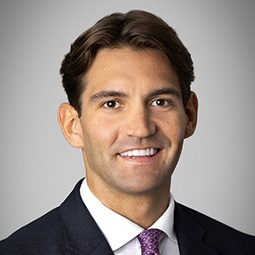In light of the Labour Party’s victory in the UK general election on 4 July 2024, this article provides a high-level overview of the potential impact of the new government on the priorities and future direction of the Serious Fraud Office (“SFO“).
Plus ça change, plus c’est la même chose
For the SFO, the election of Sir Keir Starmer as Prime Minister is only the latest change to affect the agency, and in many ways may be the least consequential.
Although the Labour Party has not made any significant policy announcements relating specifically to the SFO, it has stated that it would “introduce a new expanded fraud strategy to tackle the full range of threats, including online, public sector and serious fraud [and] work with our allies and international financial centres to tackle corruption and money laundering.”1 Some additional insight was provided by (now) Foreign Secretary David Lammy in his speech at a conference organised by the Institute for Public Policy Research on 21 May 2024, in which he stated that Labour would: (i) seek to crack down on “enablers” of white-collar crime; (ii) “establish a live-streamed global data exchange on beneficial ownership of corporate structures“; (iii) seek to create an international anti-corruption court; and (iv) implement a “new whistleblower reward scheme“.2
Given the new Prime Minister’s previous role as the Director of Public Prosecutions, and his work in the business crime group of an international law firm, it is likely that he will have strong personal views about how the SFO, as well as the National Crime Agency (“NCA“) and Crown Prosecution Service, could be reformed. However, in light of the recent Law Commission Review into corporate criminal liability3 (which led to the enactment of the Economic Crime and Corporate Transparency Act 2023 and with it, the creation of the ‘failure to prevent’ fraud offence) any potential reform of these agencies or the UK’s corporate crime framework may not be an immediate priority for the Labour Government given other potentially more pressing concerns.
New management
Likely of greater importance will be the impact that the new Director of the SFO, Nick Ephgrave (appointed in September 2023), will have on the agency. The SFO’s 2024-2029 Strategy4 appears to offer hints as to the direction of travel for the SFO under Mr Ephgrave.
Whilst the investigation of fraud by the SFO has always been a key component of the SFO’s mission statement, bribery and corruption had in recent years appeared to be a greater focus for SFO resources. For example, the previous SFO Director, Lisa Osofsky, used her maiden speech in 2018 to focus on the use of deferred prosecutions agreements under s7 of the Bribery Act; ‘fraud’ however, was mentioned sparingly.5 By contrast, the strategy paper mentions fraud nearly twice as often as bribery and corruption, and since Mr Ephgrave has taken over, the proportion of domestic fraud cases on the agency’s books has increased from 50 to 65%. It remains to be seen whether this is a long-term trend, or a short-term bounce given the ‘failure to prevent’ fraud offence now at the SFO’s disposal.
The strategy paper also suggests that the SFO will dedicate greater resources to intelligence gathering and the use of covert surveillance powers, potentially in conjunction with the NCA and UK police forces. This is indicative of a more proactive and technologically driven approach from the SFO in preventing harm, rather than prosecuting crimes after the fact, particularly in neoteric areas such as crypto and AI.
Conversely, the strategy paper is more circumspect regarding international collaboration, instead focussing on SFO engagement with the OECD forum rather than trumpeting its historically strong bilateral relationships with the US Department of Justice and other leading national enforcement agencies. This may be a result of Mr Ephgrave’s stated desire for the SFO “to be directly relevant to the [UK] taxpayer“, and therefore indicate a refocussing of the SFO’s efforts on domestic criminal prosecutions, rather than headline international investigations, as had previously been seen in the Airbus, Glencore and Rolls-Royce deferred prosecutions agreements.
Concluding thoughts
In short, it is unlikely that the new Labour Government will have a significant impact on the direction of the SFO in the short-term. In the longer-term, Sir Keir Starmer may eventually seek to make his mark on the SFO and the UK enforcement framework. However, in the here and now, any significant changes to the SFO are most likely to emanate from the office of the Director of the SFO, who will be keen to distance himself from his predecessor and re-establish the SFO’s reputation as a heavy-weight enforcement agency in the UK, before looking to have a greater impact internationally.
- Pages 69 and 124 of the Labour Party 2024 Manifesto: https://labour.org.uk/wp-content/uploads/2024/06/Change-Labour-Party-Manifesto-2024-large-print.pdf ↩︎
- David Lammy MP, transcript, 21 May 2024: https://ippr-org.files.svdcdn.com/production/Kleptocracy-Speech-FINAL.pdf ↩︎
- Law Commission Review on Corporate Criminal Liability: https://lawcom.gov.uk/project/corporate-criminal-liability/ ↩︎
- SFO, 2024-2029 Strategy: https://www.sfo.gov.uk/wp-content/uploads/2024/04/SFO-2024-29-Strategy.pdf ↩︎
- Lisa Osofsky, transcript, 3 September 2018: https://www.sfo.gov.uk/2018/09/03/lisa-osofsky-making-the-uk-a-high-risk-country-for-fraud-bribery-and-corruption/ ↩︎
Contributor(s)












